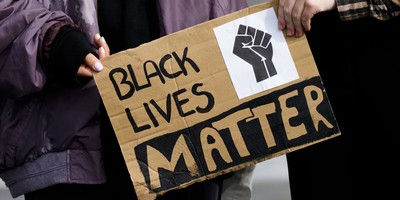The ostensible match that lit this conflagration was the Mexican government's December 27 announcement that gasoline and diesel prices would increase from 14 percent to 20 percent during 2017. Economic adjustment -- check, and one long overdue.
Demonstrations have occurred in 28 of Mexico's 32 states. Numerous gasoline stations have gone up in flames. So far, six people have died in protest-related violence. Some 1,500 have been arrested for various crimes, to include rioting and looting.
A Mexican retail group reported that 350 businesses in 10 states had been "sacked" by thieves. Several thousand other businesses have closed, fearing assault by protestors.
Crime -- check. Looters have included municipal policemen. A viral YouTube video shows crooked cops loading a squad car with stolen goods. National distrust of crooked institutions -- another check, but more on that later.
Mexico's energy market is largely government-owned as well as government regulated. The state oil company, Petroleos Mexicanos (Pemex), has nationalist political roots. Formed in 1938 in the midst of an oil worker strike, the government used expropriated foreign oil company assets to create Pemex. Many of the companies that lost assets were American. The government portrayed nationalization as a blow against U.S. imperialism.
Until this year, Pemex had no competition. Pemex has been losing a lot of money and has debts of around $100 billion. Since 2004, its crude oil production has declined. Its equipment has deteriorated. It needs capital to modernize and re-organize.
Recommended
But economically adjusting a national oil company required political change. President Enrique Pena Nieto's Institutional Revolutionary Party (PRI) and the center-right National Action Party (PAN) favored legislation that would open Mexico's energy market to competition and allow for Pemex to strike deals with private investors. The government wants a revived, profitable, internationally competitive Pemex that is producing more energy.
However, economic adjustment and systemic political change is often painful. The legislature voted to begin reducing subsidies that keep gas prices artificially low. Pena called it a "necessary measure."
Some privately-owned gas stations have now opened. The government is taking other steps to establish market-based energy pricing.
However, Mexico's political left steadfastly refuses to accept energy market liberalization. Leftist leader Andres Manuel Lopez Obrador has cloaked himself in old time Mexican nationalism and accused Pena, the PRI and the PAN of a "corrupt and cynical" sellout of Mexico. Lopez Obrador (also known as AMLO) hopes the gas price protests ignite a national movement that will make him president in 2018.
AMLO is an old left-wing insider, but now he's cast himself as the man outside the system. He vows to end neoliberal economics and fight American imperialism. He doesn't explain how these policies will revive Mexico's energy sector.
There is evidence that left-wing activists had used the gas price hikes to provoke violence and stir popular anger. Several groups associated with AMLO's National Regeneration Movement took the lead in initial protests, to include transportation workers and other labor groups.
Economic adjustment and political change are hard to achieve, but made more difficult when key political leaders and institutions are mistrusted.
Scandals plague Pena and his family. Though the president has promoted new anti-corruption laws, trust in his leadership has deteriorated.
The gas price hikes have fed the extant national anger at "impunity," the deep injustice within Mexico's governing institutions and society, which is linked to endemic corruption. A study published in 2016 suggested that only 4.46 percent of reported crimes in Mexico resulted in convictions. Investigators concluded that police and judicial branches were unresponsive to average citizens. Citizens lacked faith in these authorities -- another way of saying they lacked faith in government leadership.
President Pena has become the face of impunity. Now he finds himself without the moral authority to take "necessary measures" to modernize.

























Join the conversation as a VIP Member